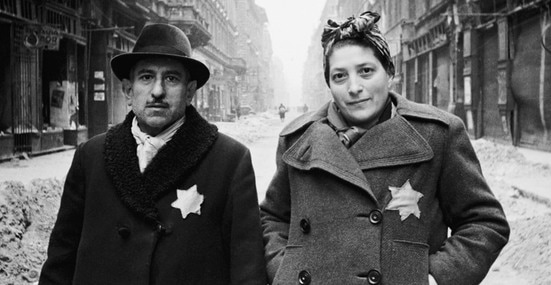NUREMBERG LAWS IN THE HOLOCAUST
The Holocaust is one of the most important events of the 20th century and is perhaps the most significant genocide in human history. A genocide is a mass killing of a group of people for ethnic, religious or racial reasons. The term ‘holocaust’ refers to death by fire in reference to the way that people were executed during the event. It unfolded during the reign of Adolf Hitler in Germany and the major events of World War II. During the Holocaust, which occurred from 1933 to 1945, over 11 million people were executed. In total, 6 million were Jewish people, while the other 5 million included several other groups, including: disabled people, homosexuals, communists, Soviet and Polish prisoners of war, gypsies, and other religious and ethnic minorities.
The first stage of the Holocaust was the Nuremberg Laws. First passed in 1935, the Nuremberg Laws made German Jewish people second class citizens and banned sexual relations and marriage between Jewish people and persons of German blood. Officially, the Nuremberg Laws were known as the ’Law for the Protection of German Blood and Honor’. The goal of the laws for the Nazis was to limit the ability of Jewish genetic traits to spread and to legalize discrimination against Jewish people in Germany. In general, the Nazi regime carried out several different forms of discrimination against undesirable people in society, including: economic discrimination, social discrimination and political discrimination. The Nuremberg Laws best represents social discrimination, because the laws isolated Jewish people within their own country and outlawed them from expressing a sense of connection with the nation. Below is the text of the Nuremberg Laws.
Reich Citizenship Law of September 15th, 1935
Article 1
1. A subject of the state is a person who enjoys the protection of the German Reich and who in consequence has specific obligations toward it.
2. The status of subject of the state is acquired in accordance with the provisions of the Reich and the Reich Citizenship Law.
Article 2
1. A Reich citizen is a subject of the state who is of German or related blood, and proves by his conduct that he is willing and fit to faithfully serve the German people and Reich.
2. Reich citizenship is acquired through the granting of a Reich citizenship certificate.
3. The Reich citizen is the sole bearer of full political rights in accordance with the law.
1. A subject of the state is a person who enjoys the protection of the German Reich and who in consequence has specific obligations toward it.
2. The status of subject of the state is acquired in accordance with the provisions of the Reich and the Reich Citizenship Law.
Article 2
1. A Reich citizen is a subject of the state who is of German or related blood, and proves by his conduct that he is willing and fit to faithfully serve the German people and Reich.
2. Reich citizenship is acquired through the granting of a Reich citizenship certificate.
3. The Reich citizen is the sole bearer of full political rights in accordance with the law.
Law for the Protection of German Blood and German Honor of September 15th, 1935
Moved by the understanding that purity of German blood is the essential condition for the continued existence of the German people, and inspired by the inflexible determination to ensure the existence of the German nation for all time, the Reichstag has unanimously adopted the following law, which is promulgated herewith:
Article 1
1. Marriages between Jews and subjects of the state of German or related blood are forbidden. Marriages nevertheless concluded are invalid, even if concluded abroad to circumvent this law.
2. Annulment proceedings can be initiated only by the state prosecutor.
Article 2
1. Extramarital relations between Jews and subjects of the state of German or related blood are forbidden.
Article 3
1. Jews may not employ in their households female subjects of the state of German or related blood who are under 45 years old.
Article 4
1. Jews are forbidden to fly the Reich or national flag or display Reich colors.
2. They are, on the other hand, permitted to display the Jewish colors. The exercise of this right is protected by the state.
Article 5
1. Any person who violates the prohibition under Article 1 will be punished with a prison sentence.
2. A male who violates the prohibition under Article 2 will be punished with a jail term or a prison sentence.
3. Any person violating the provisions under Articles 3 or 4 will be punished with a jail term of up to one year and a fine, or with one or the other of these penalties.
Article 1
1. Marriages between Jews and subjects of the state of German or related blood are forbidden. Marriages nevertheless concluded are invalid, even if concluded abroad to circumvent this law.
2. Annulment proceedings can be initiated only by the state prosecutor.
Article 2
1. Extramarital relations between Jews and subjects of the state of German or related blood are forbidden.
Article 3
1. Jews may not employ in their households female subjects of the state of German or related blood who are under 45 years old.
Article 4
1. Jews are forbidden to fly the Reich or national flag or display Reich colors.
2. They are, on the other hand, permitted to display the Jewish colors. The exercise of this right is protected by the state.
Article 5
1. Any person who violates the prohibition under Article 1 will be punished with a prison sentence.
2. A male who violates the prohibition under Article 2 will be punished with a jail term or a prison sentence.
3. Any person violating the provisions under Articles 3 or 4 will be punished with a jail term of up to one year and a fine, or with one or the other of these penalties.
CITE THIS ARTICLEAUTHOR
|
|

